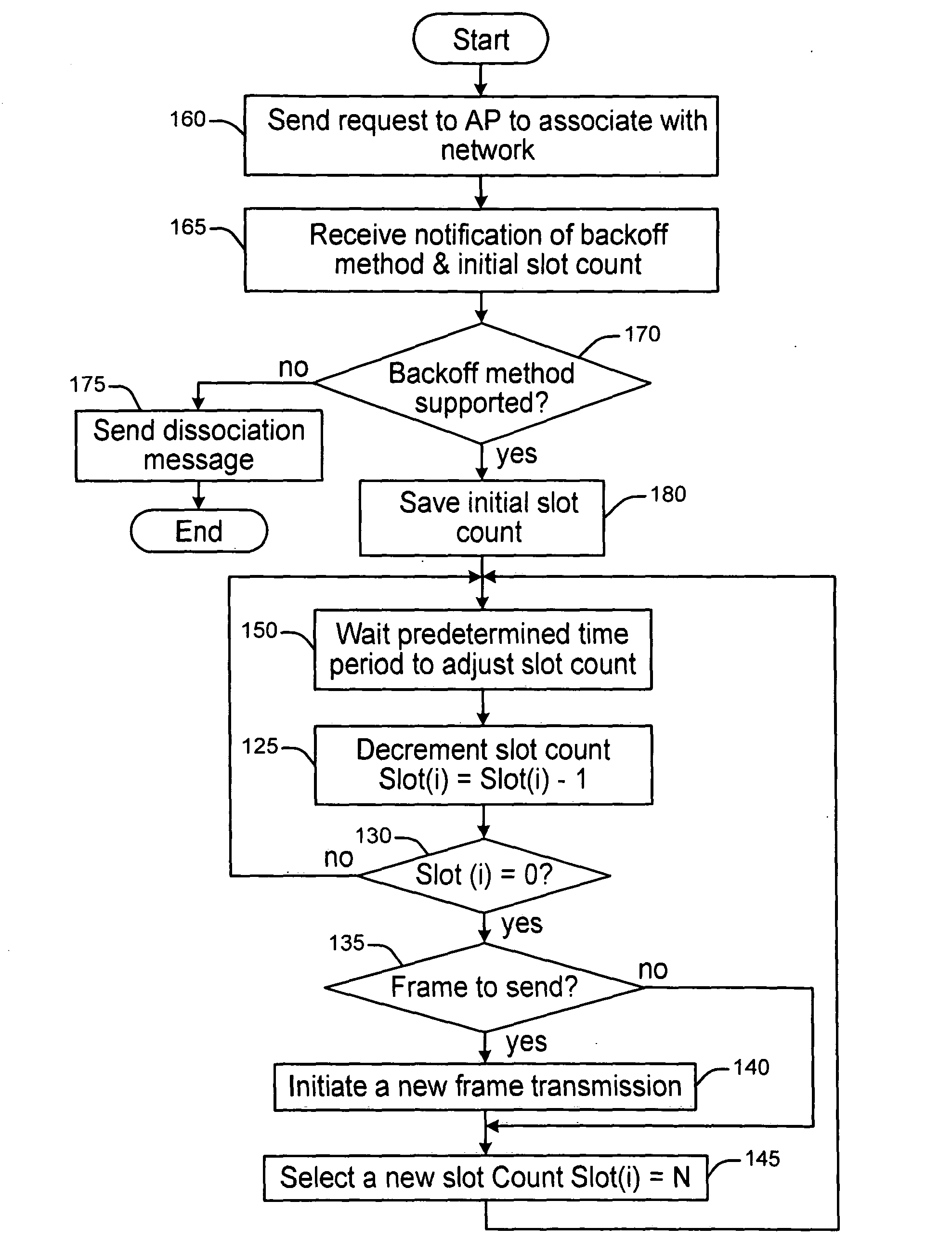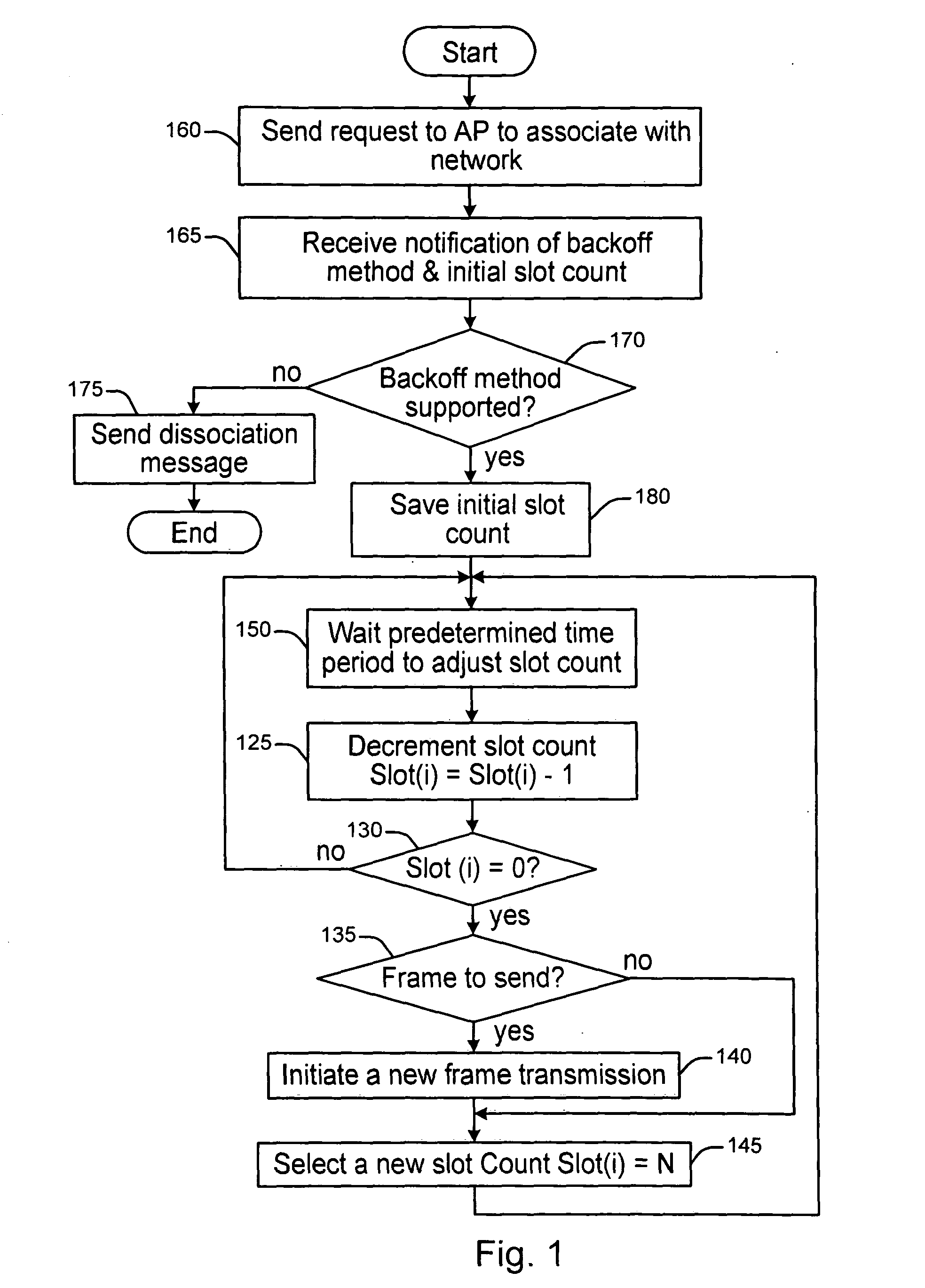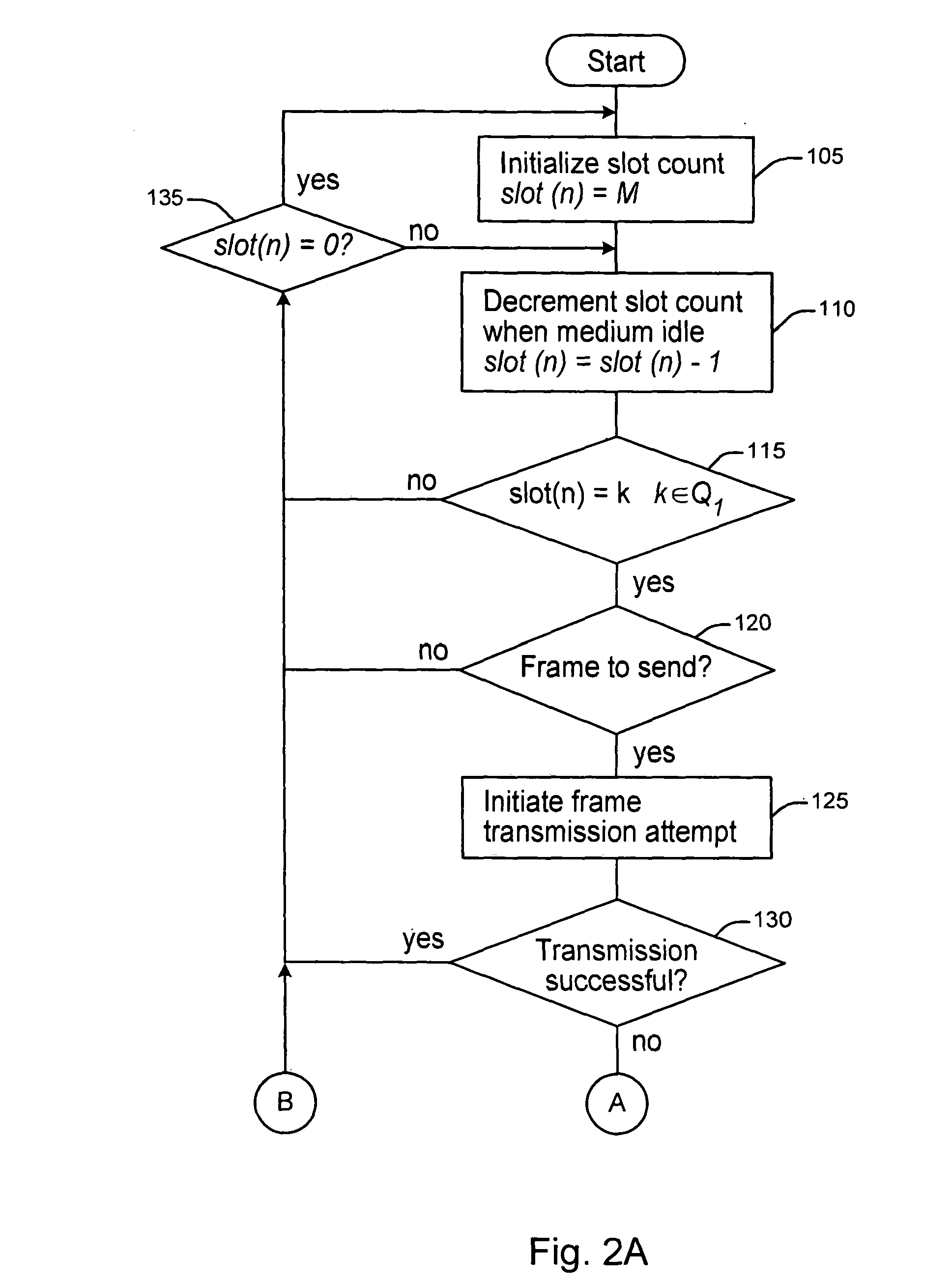Relaxed deterministic back-off method for medium access control
a medium access delay and deterministic back-off technology, applied in the field of wireless communications, can solve the problems of significantly affecting the network throughput of large-scale networks, the inability to limit the delay of medium access, and the exponential increase in the probability of a transmission attempt, so as to improve the deb algorithm, enhance the robustness of physical sensing error, and increase the flexibility of managemen
- Summary
- Abstract
- Description
- Claims
- Application Information
AI Technical Summary
Benefits of technology
Problems solved by technology
Method used
Image
Examples
Embodiment Construction
[0020]Some concepts / terms that may benefit the understanding of the present invention are provided. A back-off round / stage is a procedure in which the back-off slot counter counts down from an initial value (maximum) to a critical value (minimum). When the counter reaches the critical value, a new transmission is attempted. One frame transmission may involve multiple back-off rounds / stages (because of unsuccessful transmission attempts). As used herein a time slot represents a continuous time period during which the back-off slot counter is frozen. It may refer to either a fixed time period (usually several microseconds) sufficient for the physical layer to perform the carrier sensing once, or a varying time period (usually between hundreds of microseconds to several milliseconds, depending on the length of the packet and physical data rate) when a frame is being transmitted over the shared medium. In a network with shared medium, each station freezes or decreases its back-off slot ...
PUM
 Login to View More
Login to View More Abstract
Description
Claims
Application Information
 Login to View More
Login to View More - R&D
- Intellectual Property
- Life Sciences
- Materials
- Tech Scout
- Unparalleled Data Quality
- Higher Quality Content
- 60% Fewer Hallucinations
Browse by: Latest US Patents, China's latest patents, Technical Efficacy Thesaurus, Application Domain, Technology Topic, Popular Technical Reports.
© 2025 PatSnap. All rights reserved.Legal|Privacy policy|Modern Slavery Act Transparency Statement|Sitemap|About US| Contact US: help@patsnap.com



